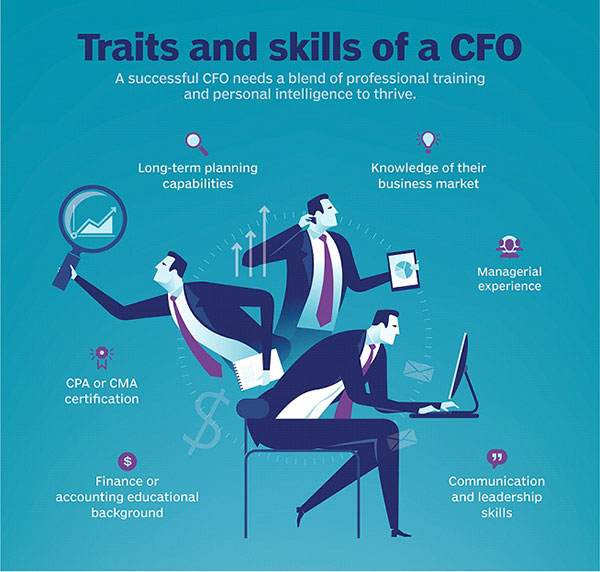Features
Growing or counting beans

 At the 35th ASIAN Conference in Ho Chi Ming City, Professor Yoshikatsu Shinozawa from Hitotsubashi University in Japan presented a fascinating paper titled “Counting or Growing Beans: The presence and strategic impact of chief financial officers (CFOs) in Japanese firms.” The paper highlights the need for CFOs to play a more proactive role in the company’s success, similar to how the CEO of Coca-Cola, Roberto Goizueta, once put it. He said that nowadays, CFOs are not just responsible for managing the company’s current financial situation but also for finding innovative ways to expand and grow the business, like cultivating new beans alongside the existing ones. This calls for a more dynamic and strategic approach from CFOs to drive the company forward and create value.
At the 35th ASIAN Conference in Ho Chi Ming City, Professor Yoshikatsu Shinozawa from Hitotsubashi University in Japan presented a fascinating paper titled “Counting or Growing Beans: The presence and strategic impact of chief financial officers (CFOs) in Japanese firms.” The paper highlights the need for CFOs to play a more proactive role in the company’s success, similar to how the CEO of Coca-Cola, Roberto Goizueta, once put it. He said that nowadays, CFOs are not just responsible for managing the company’s current financial situation but also for finding innovative ways to expand and grow the business, like cultivating new beans alongside the existing ones. This calls for a more dynamic and strategic approach from CFOs to drive the company forward and create value.
On the importance of accountability of financial reporting, Generally, CFOs are considered the financial stewards of their companies and arguably second in importance only to the Chief Executive Officer (CEO) in corporate hierarchies. Indeed, following the Enron crisis, the importance of the role a CFO plays is now fully recognized by regulators. For example, the Sarbanes-Oxley Act of 2002 requires both the CEO and CFO of a publicly traded U.S. firm to personally certify the material accuracy and completeness of the financial information and disclosures released to the public.
Thus, in the U.S., the CFO is legislatively elevated to the same level of the CEO in terms of financial reporting and oversight. CFOs, particularly in a US corporation, oversee the implementation of accounting principles and procedures and the preparation of financial reports. They are also responsible for establishing and maintaining internal controls and reporting any deficiencies to the audit committee and the external auditors. As a result, CFOs must work closely with internal auditors in order to identify any potential internal control weaknesses.
CFOs can potentially influence the quality of financial reporting by monitoring the expertise of accounting personnel, by their attitude toward internal controls, and through their role as conduits of information to directors, other managers, and auditors. Because they link with other functional directors, the CEO and auditors, their role in the firm is more strategic than operational. As such CFOs have also become key players in strategic planning, mergers and acquisitions, implementing information technology initiatives and managing associations with venture capitalists and the investing public.
Five decades ago, the role of CFOs was never this complicated nor seen as this strategic, at a time when corporate finance was a back-office function performed by treasurers or 3 controllers, whose duties were confined to tasks like bookkeeping, preparing tax statements, monitoring debt and capital structures.
Decision-making was the prerogative of operational managers from manufacturing to sales and marketing, while the corporate treasurer was mainly involved with creating the budget, usually after production decisions had been made. Extant literature offers two reasons behind the rise of the finance manager from the traditional role of bookkeeping to the level of chief. The first argument is predicated on the firms’ dependency on capital, particularly during times of financial crises or following the passing of unfavourable legislation that impacted on earnings statements. The salience of external financing suggested that management had to restructure the locus and nature of financial expertise within firms in order to meet firms’ funding needs. The uncertainty associated with external financing due to fluctuations in stock markets and interests made the presence of a financial expert in the boardroom even more exigent.
The second reason was borne out of the central theme of the shareholder system that the firm should be taken as a vehicle for investment, involving assessment of risk and investing in less risky but potentially value-enhancing projects. Consequently, this had the effect of casting managers with a background in finance as best equipped to run corporations, leading to the transfer of control from production to finance. Consequently, as Khan says, companies started looking for financial officers who could do more than cut costs…so CFOs tossed aside their green eyeshades and turned to more creative pursuits.
A similar sentiment was expressed by Roberto Goizueta, the late chairman and CEO of Coca-Cola between 1981-1997 when he said that today’s CFOs are being asked to grow new beans in addition to counting the company’s existing beans. It can be argued, therefore, that changes to the role of CFOs came as a result of the need for firms to pay attention to the whims of financial markets, a development that saw the finance manager move from the tail-end of corporate decision-making to its strategic apex as part and parcel of the shareholder movement.
MBA
In addition to professional qualifications, the pursuit of Master of Business Administration (MBA) degrees by many senior managers, including CEOs and CFOs, is very common due to the value and benefits of it interalia:
1. Broad Skill Set: MBAs provide a well-rounded education, covering various business disciplines such as finance, marketing, operations, strategy, and leadership. This diverse skill set equips senior managers with a comprehensive understanding of different aspects of business management, enabling them to make informed and strategic decisions.
2. Leadership Development: MBA programs often include courses and experiential learning opportunities focused on leadership and management skills. CEOs and CFOs need strong leadership capabilities to inspire and guide their teams effectively, making an MBA a valuable tool in honing these critical attributes.
3. Networking Opportunities: MBA programs typically attract a diverse group of professionals from different industries and backgrounds. Building a strong network of peers, professors, and alumni can provide senior managers with valuable connections and resources that can be leveraged throughout their careers.
4. Global Perspective: In an increasingly interconnected world, understanding global business trends and dynamics is essential for senior executives. MBA programs often offer international experiences, exposure to global case studies, and discussions, preparing managers to navigate the complexities of the global market.
5. Adaptation to Changing Business Environment: The business landscape is constantly evolving, with new technologies, market dynamics, and regulatory changes emerging. An MBA education provides senior managers with the tools to adapt and stay ahead of these changes, making them more effective leaders in dynamic environments.
6. Problem-Solving and Analytical Skills: MBA programs emphasize critical thinking, problem-solving, and data analysis, which are essential skills for senior managers. The ability to analyze complex situations, identify opportunities, and devise effective strategies is invaluable in leading companies to success.
7. Credibility and Career Advancement: Earning an MBA from a reputable institution enhances a senior manager’s credibility and can open doors to career advancement opportunities. The degree can demonstrate a commitment to professional growth and excellence, increasing the likelihood of being considered for higher-level roles.
8. Continuous Learning and Personal Growth: Pursuing an MBA is not just about gaining knowledge; it is also about personal development. Senior managers often view the degree as a way to challenge themselves intellectually, broaden their horizons, and push their boundaries, leading to personal growth and self-improvement.
9. Access to Specialized Knowledge: While senior managers may have substantial experience in their respective fields, an MBA can provide them with specialized knowledge in areas they may not have encountered in their career. This broader perspective can lead to innovative solutions and fresh insights.
10. Succession Planning and Talent Development: Some companies encourage senior managers to pursue MBAs as part of their succession planning and talent development strategies. Investing in the education of promising leaders ensures a pipeline of skilled executives who can drive the company forward.
(The author, a senior Chartered Accountant and professional banker, holds a PhD from AUT university in New Zealand. He has authored numerous national and international publications. Currently, he is Professor in Business Management at SLIIT Business School, SLIIT University, Malabe. The views and opinions expressed in this article are solely those of the author and do not necessarily reflect the official policy or position of the institution he works for.)
Features
‘Silent Majority’ abandoned to Long-suffering in regional conflicts

 With reports emerging that India has attacked some ‘sites’ in Pakistan and Pakistan-administered Kashmir, the question could be posed whether the stage has just been set for yet another costly India-Pakistan military conflict. Sensible opinion in South Asia could only hope that wise counsel would sooner rather than later come to prevail on both sides of the divide and that they would draw back from the brink of full-scale war.
With reports emerging that India has attacked some ‘sites’ in Pakistan and Pakistan-administered Kashmir, the question could be posed whether the stage has just been set for yet another costly India-Pakistan military conflict. Sensible opinion in South Asia could only hope that wise counsel would sooner rather than later come to prevail on both sides of the divide and that they would draw back from the brink of full-scale war.
The states concerned ought to know fully well the possible wide-ranging weighty consequences of another regional conflict. It should be plain to see that it would benefit none in the two theatres of confrontation, most particularly the relevant publics or the ‘Silent Majority’.
In fact, in connection with the mentioned initial military attacks, the Pakistani side has gone on record that some civilian lives have been lost. Such losses could burgeon in the event of full scale hostilities. These costs could of course be staggering and unimaginable in the event the nuclear option is resorted to by the sides, going forward.
Accordingly, the hope of the peace-loving world-wide is likely to be that India and Pakistan would give negotiations a chance and resolve their differences peacefully. It would be in the best interests of the world for the champions of peace to join their voices to that of UN chief Antonio Guterres and call on the sides to negotiate an end to their differences.
The utter helplessness and misery of the people of the Gaza ought to drive home afresh the horrors of war. Currently the news is that the Gazans are literally starving to death. Food and other essentials provided by UN agencies are reportedly being prevented by Israel from getting to the hapless people of Gaza. So dire is their situation that concerned quarters are calling on the compassionate worldwide to provide the Gazans with food, water and other essentials voluntarily. This SOS would need to be heeded forthwith.
Accordingly, it could be inferred that most formal arrangements, including those that are generally under the purview of the UN, geared to providing emergency humanitarian assistance to the needy, have, for all intents and purposes, been rendered ineffective in the Gaza. The UN cannot be faulted for this state of things; rather, Israel should be held accountable in the main for it.
The matter of accountability is central to the dramatic slide into lawlessness the world has been experiencing over the past few decades. As could be seen, International Law is no longer fully applicable in the conflict and war zones of the world because it is not being adhered to by many state and non-state aggressors. That the UN is hapless in the face of such lawlessness is plain to see.
We have of course the Middle East wherein International Law has fallen silent for quite a while. How could it be otherwise, when Israeli aggressions are being winked at by the US, for which the policy of backing Israel is almost sacrosanct?
Moreover, under President Donald Trump, it is difficult to see the US changing policy course on the Middle East. Trump made vague promises of bringing peace to the region in the run-up to his reelection but has done nothing concrete by way of peace-making. Consequently, complete lawlessness prevails in the Middle East. US policy towards Israel counts as another example of how the self- interest of US central administrations blinds them to their international obligations, in this case Middle East peace.
However, the commentator could be criticized as being biased if he holds only Israel responsible for what has befallen the Middle East. It has been the position of this columnist that Israel’s security needs should be taken cognizance of by its state and non-state adversaries in the Middle East and acted upon if the basis is to be laid for a durable Middle East peace. Inasmuch as Palestinian statehood must be guaranteed, the same should be seen as applicable to Israel. The latter too enjoys the right to live in a secure state of its own, unopposed by its neighbours.
The Ukraine of today is also sad testimony to the ill consequences of powerful, aggressor states wantonly disregarding International Law and its obligations. Nothing could justify Russia in invading Ukraine and subjecting it to a condition of Longsuffering. Clearly, Ukraine’s sovereignty has been violated and such excesses go to the heart of the current state of ‘International Disorder’. Of course the same stricture applies to the US in relation to its military misadventures in Afghanistan and Iraq, to name just two such modern examples.
There is no ducking the fact, then, that civilian publics in the mentioned theatres of war and outside, are being subjected to the worst suffering as a consequence of the big powers’ self-aggrandizement schemes and military misadventures. Longsuffering becomes the tragic lot of the people who have nothing to do with such unbridled power ambitions.
One would not be exaggerating the case if he states that civilian publics count for almost nothing in the present ‘International Disorder’. Increasingly it is becoming evident that from the viewpoint of the big powers and authoritarian governments the people are of little or no importance. Considering that self-aggrandizement is of the paramount interest for the former the public interest is coming to be seen as inconsequential.
Consequently, not much of a case could be made currently for the once almost reverentially spoken of ‘Social Contract’. For, the public interest does not count for much in the scrambles for power among the major powers who are seen at the popular level as the principal history-makers.
It is in view of the above that much is expected of India. Today the latter is a ‘Swing State’ of the first importance. Besides being a major democracy, it is one of the world’s principal economic and military powers. It possesses abundant potential to help to put things right in international politics. If there is one state in Asia that could help in restoring respect for International Law, it is India.
Considering the above, India, one believes, is obliged to bear the responsibility of keeping South Asia free of any more long-running, wasting wars that could aggravate the material hardships and socio-economic blights of the region. Thus, India would need to consider it imperative to negotiating peace with Pakistan.
Features
Memorable happening … Down Under

 Under the Global-Ise Australia Advanced Sports Development Programme, a delegation of 15 swimmers from Lyceum International School, Wattala, had the remarkable opportunity to train and experience high-performance sports development in Melbourne, Australia.
Under the Global-Ise Australia Advanced Sports Development Programme, a delegation of 15 swimmers from Lyceum International School, Wattala, had the remarkable opportunity to train and experience high-performance sports development in Melbourne, Australia.
The 10-day programme was carefully curated to offer intensive training, educational exposure, and cultural experiences for the young athletes.
The swimmers underwent specialised training through Swimming Victoria’s elite programme, held at some of Melbourne’s premier aquatic facilities.

Visit to Victorian Parliament
Each day began as early as 5:00 a.m. and continued until 7:00 p.m., ensuring a rigorous and enriching schedule that mirrored the standards of international competitive swimming.
Beyond training, the programme offered a wide array of experiences to broaden the students’ horizons.

Morning training
The tour group explored iconic landmarks such as the Victorian Parliament and the Melbourne Cricket Ground (MCG), and enjoyed shopping at Chadstone – The Fashion Capital. They also experienced the natural beauty of Victoria with visits to Yarra Valley Chocolaterie & Ice Creamery, and Cardinia Reservoir Park, where they observed kangaroos in their natural habitat.
An academic highlight of the tour was the group’s exclusive visits to three of Australia’s leading universities: the University of Melbourne, Monash University, and Deakin University. These visits aimed to inspire students and showcase the vast educational opportunities available in Australia.

Checking out the scene at Yarra Valley Chocolaterie & Ice Creamery
As part of the cultural immersion, Global-Ise hosted a traditional Australian BBQ at the Tim Neville Arboretum in Ferntree Gully. The students also enjoyed a variety of diverse culinary experiences each evening, further enriching their understanding of local and international food cultures.
The tour concluded with a celebratory dinner at the Spicy Wicket Restaurant, where each participant received a presentation in recognition of their involvement.

Enjoying an Aussie BBQ for lunch
The evening was made especially memorable by the presence of Pradeepa Saram, Consul General of Sri Lanka in Victoria.
Global-Ise Management—Ken Jacobs, Johann Jayasinha, and Dr Luckmika Perera (Consultant from the University of Melbourne)—did a magnificent job in planning and the execution of the advanced sports programme.

Coaches from Sri Lanka presenting a plaque to Global-Ise Management team
Ken Jacobs (centre), Johann Jayasinha, and Dr Luckmika Perera (on the right
Features
Bright, Smooth Skin

 Hi! How’s the beauty scene keeping with you?
Hi! How’s the beauty scene keeping with you?
Phew, this heat is awful but there is nothing that we can do about it.
However, there are ways and means to take care of your skin and I will do my best to help you in every way I can.
Well, this week, let’s go for a Bright, Smooth Skin.
Gram flour (also known as besan) is a traditional skincare ingredient known for its:
* Natural exfoliating properties.
* Ability to absorb excess oil.
* Gentle brightening and tan-removal effects.
* Suitability for all skin types, especially oily and acne-prone skin.
You will need 01–02 tablespoons gram flour (besan) and rose water, or raw milk, to make a paste.
You could add the following two as optional add-ins: A pinch of turmeric (for extra glow), and a few drops of lemon juice (for oily skin and pigmentation)
Add the gram flour to a small bowl and mix in the rose water (for oily/sensitive skin) or raw milk (for dry skin) slowly.
Stir well to make a smooth, spreadable paste—not too thick, not too runny.
Now apply this mixture, evenly, to your damp face and neck, and let it sit for 5–10 minutes (don’t let it dry completely if you have dry skin).
Gently massage in circular motions using wet fingers—this helps exfoliate.
Rinse off with lukewarm water, and then pat your skin dry.
Use it 02–03 times a week for best results.
Skin Benefits:
* Removes dirt, sweat, and oil without stripping natural moisture.
* Gently exfoliates dead skin cells, revealing smoother skin.
* Brightens the complexion and fades mild tanning.
* Helps clear clogged pores and reduce pimples.
* Leaves skin fresh and glowing—perfect for humid climates.
-

 News6 days ago
News6 days agoRanil’s Chief Security Officer transferred to KKS
-

 Opinion4 days ago
Opinion4 days agoRemembering Dr. Samuel Mathew: A Heart that Healed Countless Lives
-

 Business2 days ago
Business2 days agoAitken Spence Travels continues its leadership as the only Travelife-Certified DMC in Sri Lanka
-

 Business2 days ago
Business2 days agoLinearSix and InsureMO® expand partnership
-

 Business6 days ago
Business6 days agoCCPI in April 2025 signals a further easing of deflationary conditions
-

 Features6 days ago
Features6 days agoExpensive to die; worship fervour eclipses piety
-

 Features4 days ago
Features4 days agoTrump’s economic missiles are boomeranging
-

 Latest News4 days ago
Latest News4 days agoThe Heat index is likely to increase up to ‘Caution level’ at some places in Eastern, Northern, North-central and North-western provinces and in Monaragala and Hambantota districts.












